#political polarization
Text

#hillary clinton#donald trump#maga#elections have consequences#political opinion#2016 election#democratic party#voter engagement#political consequences#current events#genocide#authoritarianism#political polarization#israel#gaza#gaza strip#palestine#free palestine#anti-semitic#islamophobia#zionism#alwaysbewoke
100 notes
·
View notes
Text
“Given how often our nation’s elites today use their power and influence to rob us of our freedom of speech and rights to self-determination—because we are apparently not to be trusted to govern ourselves without their malign interference—we cannot continue to allow our current crop of misguided and deeply un-American leaders to remain in control of our nation and its vital institutions.”
#leadership#extremism#government#democracy#save america#accountability#american history#censorship#culture#elites#morality#official lies#patriotism#political polarization#politics#protest#social welfare#voter anger
48 notes
·
View notes
Text


Abstract
In this article, we examine psychological features of extreme political ideologies. In what ways are political left- and right-wing extremists similar to one another and different from moderates? We propose and review four interrelated propositions that explain adherence to extreme political ideologies from a psychological perspective. We argue that (a) psychological distress stimulates adopting an extreme ideological outlook; (b) extreme ideologies are characterized by a relatively simplistic, black-and-white perception of the social world; (c) because of such mental simplicity, political extremists are overconfident in their judgments; and (d) political extremists are less tolerant of different groups and opinions than political moderates. In closing, we discuss how these psychological features of political extremists increase the likelihood of conflict among groups in society.
In a polarizing political climate, citizens frequently experience a clash of values when debating pressing societal issues. A central question in political psychology has been how the general ideologies that represent these values drive human cognition, emotion, and behavior. Notably, the rigidity-of-the-right model stipulates that the political left and right differ in their cognitive styles, as reflected in increased closed-mindedness among individuals on the right (Jost, 2017). In recent years, however, researchers have increasingly recognized that not only political orientation but also political extremism meaningfully predict people’s responses to societal and political events. We define political extremism as the extent to which regular citizens are polarized into, and strongly identify with, generic left- or right-wing ideological outlooks on society. In this article, we examine psychological features of extreme political ideologies. In what ways are political left- and right-wing extremists actually quite similar to one another and different from moderates?
The basic idea that left- and right-wing extremists share a range of psychological similarities is consistent with theories of extremism and radicalization (e.g., Kruglanski et al., 2014; see also Greenberg & Jonas, 2003; Hoffer, 1951). The goal of this article is to examine the psychology of extreme political ideologies by integrating these prior theoretical insights with recent findings. We specifically propose four interrelated psychological features that characterize political extremism. Moreover, although we do not dispute that political orientation predicts important psychological variables (e.g., acceptance of inequality), we illuminate how some psychological features that were historically attributed to the political right might more accurately be attributed to both political extremes.
Political Extremism: Four Psychological Features
Although we do not claim that the propositions reviewed here represent the only psychological features of political extremism, they are well supported by empirical evidence, have been frequently studied by psychologists, and jointly contribute to a parsimonious understanding of this phenomenon. We specifically examine the relationships between political extremism and (a) psychological distress, (b) cognitive simplicity, (c) overconfidence, and (d) intolerance.
[..]
Discussion
The four psychological features discussed here suggest that political extremism is fueled by feelings of distress and is reflected in cognitive simplicity, overconfidence, and intolerance. These insights are important to understanding how political polarization increases political instability and the likelihood of conflict between groups in society. Excessive confidence in the moral superiority of one’s own ideological beliefs impedes meaningful interaction and cooperation with different ideological groups and structures political decision making as a zero-sum game with winners and losers. Strong moral convictions consistently decrease people’s ability to compromise and even increase a willingness to use violence to reach ideological goals (Skitka, 2010). These processes are exacerbated by people’s tendency to selectively expose themselves to people and ideas that validate their own convictions. For instance, both information and misinformation selectively spread in online echo chambers of like-minded people (Del Vicario et al., 2016).
This article extends current insights in at least three ways. First, the features proposed here help to explain why throughout the past century not only extreme-right but also extreme-left movements (e.g., socialism, communism) have thrived in times of crisis (Midlarsky, 2011). Second, understanding the mind-set of extremists in all corners of the political spectrum is important in times of polarization and populist rhetoric. The current propositions provide insights into why traditionally moderate parties in the EU have suffered substantial electoral losses. In particular, the support for well-established parties on the moderate left (e.g., social democrats) and moderate right (e.g., Christian democrats) has dropped in recent years, whereas the support for left- and right-wing populist parties has increased (Krouwel, 2012). Third, the present arguments are based on evidence from multiple countries with different political systems (van Prooijen & Krouwel, 2017), which suggests that they apply to both two-party systems (e.g., the United States) and multiparty systems (e.g., many European countries).
[..]
To conclude, although there are important psychological differences between people with left-wing and people with right-wing ideologies, there are also substantial similarities between left- and right-wing extremists that differentiate them from political moderates. The features presented here provide a psychological perspective on political extremism and contribute to a more complete understanding of how political ideology predicts human cognition, emotion, and behavior.
==
Explains the authoritarian streak coming from both sides.
#horseshoe theory#political extremism#far right#far left#political moderates#far left extremism#far right extremism#political polarization#polarization#intolerance#cognitive simplicity#black and white thinking#overconfidence#psychological distress#authoritarianism#religious authoritarianism#woke authoritarianism#religion is a mental illness
16 notes
·
View notes
Text

Political Polarization is no doubt one of the most wicked design problems plaguing America today. While many are quick to point fingers blaming social media algorithms or the "mainstream media", there unfortunately is no one root cause. The research discussed in this article proves there is no "easy fix." Since I don't have a design solution (yet), I made a poster of the problem instead. Enjoy.
2 notes
·
View notes
Text
Watch "How Tech Companies Are Profiting Off Your Anger - Long Story Short | The Daily Show" on YouTube
youtube
#the daily show#daily show#political spectrum#political satire#political polarization#sarah silverman#Youtube
2 notes
·
View notes
Quote
While there are legitimate concerns that UBI could exacerbate problems, such as social atomization, the issue is not so much that everyone must be employed but rather that society is set up around work, so being unemployed basically makes one a non-person. While I understand the case for a jobs guarantee, in reality make-work jobs only benefit select groups of people, the jobs guarantee would just further entrench bureaucracy and institutional control, and America is too politically polarized for any kind of national service. Besides economics, restructuring society for UBI would have to address psych-social issues, including, helping people find status, meaning, and purpose in life, a role in society that suits their strengths, as well as community and family formation. While I am extremely pessimistic about anything positive coming from top down social engineering, I see trends like enclavism, neo-tribalism, and parallel institutions and economies forming as a reaction to mass automation and declining trust in institutions.
Robert Stark, “UBI Reconsidered For ‘23″ (February 3rd 2023).
#Universal Basic Income#political polarization#American Politics#American Civilization#Social Policy#Current State of Affairs
3 notes
·
View notes
Text
It seems unlikely that the Trump-era Republicans installing the policy priorities of their preponderantly white and Christian coalition across the red states will be satisfied just setting the rules in the places now under their control. Podhorzer, like Mason and Grumbach, believes that the MAGA movement’s long-term goal is to tilt the electoral rules in enough states to make winning Congress or the White House almost impossible for Democrats. Then, with support from the GOP-appointed majority on the Supreme Court, Republicans could impose red-state values and programs nationwide, even if most Americans oppose them. The “MAGA movement is not stopping at the borders of the states it already controls,” Podhorzer writes. “It seeks to conquer as much territory as possible by any means possible.”
1 note
·
View note
Text
Is Illegal Immigration Good for the Democrats?
They think so but they are most likely wrong. Very, very wrong.
Since the Eighties with roots going back into the Civil Rights era the Democrats have tooled themselves as the party of civil rights for the oppressed. Their policies have been unmitigated disasters for all the people they ‘helped’ but owning the media has its perks, right?
I mean, until you don’t own the media anymore. At least…

View On WordPress
#civil rights#Democratic Party#illegal immigration#Immigration policies#Job market#Party base#Policy critique#Political polarization#Political strategy#Voter demographics
0 notes
Text
Swing States in 2024 Presidential Election
Swing States in the 2024 Presidential Election
Georgia and Arizona are predicted to be among the closest contenders in the power rankings in the 2024 presidential election. This state was once a Republican stronghold. Wisconsin, Nevada and Pennsylvania have flipped red and blue over the past few years, so it’s been difficult to figure out who enrolled voters there will choose in 2024.
“The…
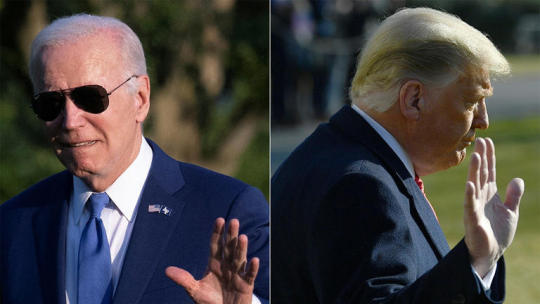
View On WordPress
#Arizona#battleground states#Campaign strategies#Colorado#Demographic shifts#Electoral battlegrounds#Electoral dynamics#Florida#Georgia#Nevada#North Carolina#Pennsylvania#Political demographics#Political polarization#Presidential election#swing states#Voter trends#Wisconsin
1 note
·
View note
Text
Election 2024: The Asymmetrical Threat From the Republican Party and Leftist Activist Mavericks
The media insists that both Republicans and Democrats pose violent threats against our democratic norms and traditions when it clearly is only the Republicans that do. This post ties together how elite overproduction and racial ani
SUMMARY: Both rightwing and mainstream media sources insist that bothsides engage in antidemocratic violence equally. A careful consideration of the evidence reveals that it is the Republican Party rank and vile that poses the biggest threat of violence to our democracy and their apologists that are normalizing it. The minuscule number of leftists supporting political violence do not support the…
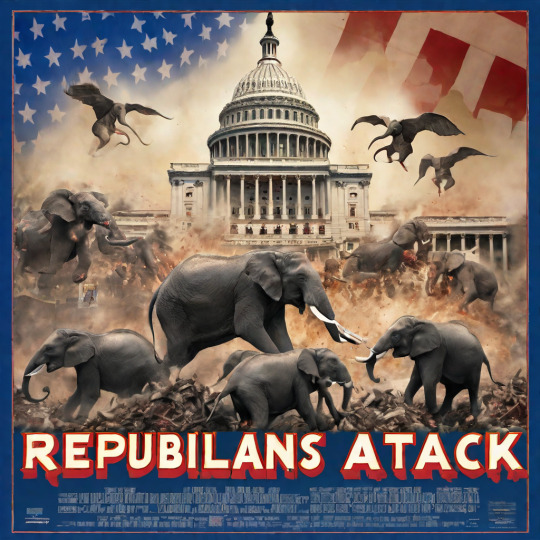
View On WordPress
#6 January Insurrection#Activist Maverics#Arlie Hochschild#Asymmetrical Threat#Authoritarianism#Bothsidesism#Carnegie Endowment for International Peace#Conservative Rural Christian White Voters#Conservatives#Democracy Fund#Election 2024#Inner Racist#Leftists#Liberals#Overproduced Elites#Political Polarization#Political Violence#Pro-Violence#Progressives#Rachel Kleinfeld#Republican Party#White People
0 notes
Text
youtube
This reminds me of an article several years ago about young people being more cynical of liberal democracy, with a growing subset yearning for a military dictatorship. What's interesting is that democracy is sometimes judged from outcomes rather than processes, which makes it intriguing on where it goes next.
If an authoritarian leader could give you what you want politically, but at the cost of your most precious thing, would you accept them?
As for my political awakening, I was aware of the Iraq War, and knew of the 2008 Election. The Arab Spring is where it really started rolling.
#new york times#authoritarianism#donald trump#geert wilders#javier milei#democracy#political polarization#current affairs#politics#populism#peace now#freedom#Youtube
1 note
·
View note
Text
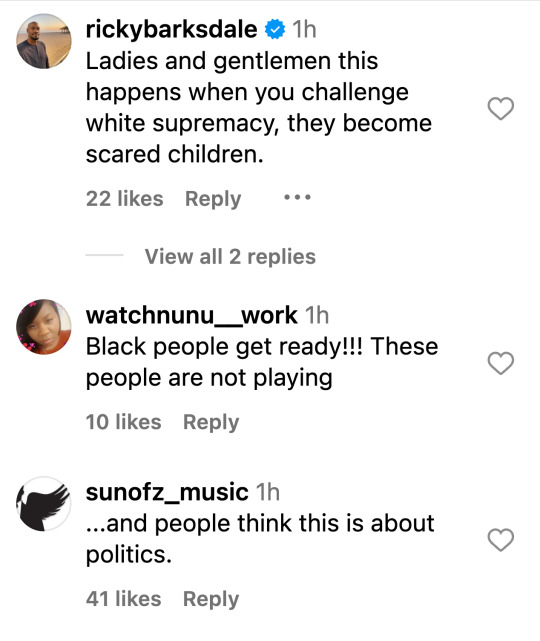

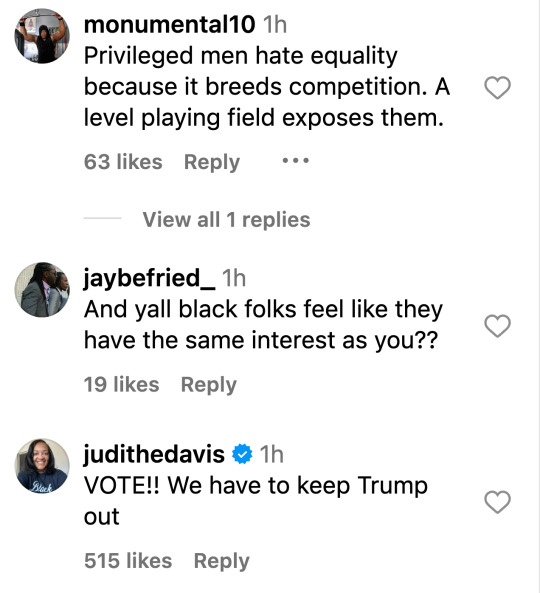



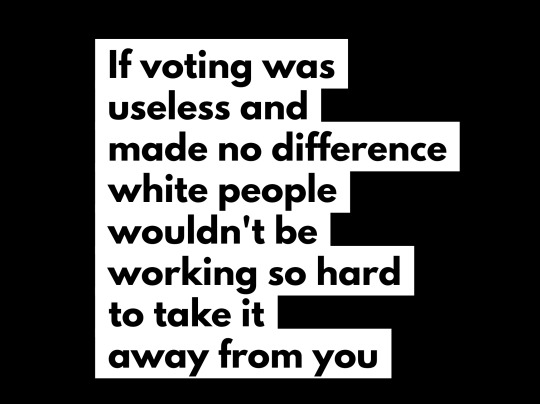
#voting rights#maga#voter discrimination#voter suppression#white racial hatred#voting#racial inequality#civil rights#political polarization#voter intimidation#voting access#electoral integrity#democratic participation#white supremacy#racism#social justice#equality#end hate#anti-racism#racial equality#stop racism#no to hate#dismantle racism
95 notes
·
View notes
Text
“The current model of higher education, one featuring runaway spending and punitive intellectual rigidity, cannot survive.”
#affordability#cancel culture#censorship#college#college admissions#college readiness#critical thinking#economics#education#education reform#free speech#freedom of speech#higher education#online education#political polarization#remote learning#student loans#teaching#Online education
64 notes
·
View notes
Video
youtube
New Rule: America's Danger Zone - Real Time with Bill Maher
The people who made this movie [Top Gun: Maverick] understood that we as a nation right now, are just too fractured to even have a common enemy that we can all agree on. So they left it up to our imagination. Who do you hate? Put ‘em in there.
You would think that for a nation like us that’s been around a while, and been through some shit together, it wouldn’t be this hard to agree on a mutual bad guy.
It used to be Russia, and still could be. But then, Republicans started showing up in “I’d rather be a Russian than a Democrat” t-shirts. And siding with Putin.
And Liberals - you couldn’t have the enemy be an Arab country, that would be “Islamophobic.” Can’t be an Asian country, cause that would be racist. Next you’ll be blaming China for COVID.
That’s right, not even a pandemic could unite us.
COVID couldn’t do it.
Russia couldn’t do it.
China couldn’t do it.
Not even Amber Heard could do it.
You know, the old cliche has always been that if Martians attacked, it would be the one thing that brings the whole world together. Now, I don’t think it would even bring Americans together.
The Martians could blow up the White House like in “Independence Day” and half the country would be cheering in the streets. When they said “take us to your leader,” we’d start killing each other over who that is.
Giant robotic tripods could be vaporizing New Jersey, and Republicans would say “this is what happens in Biden’s America; it never happened when Trump was in office.”
Democrats would point out how the death lasers were disproportionately affecting low-income communities and people of color, and AOC would tweet “Stop demonizing the Martianx community. 👽”

Alex Jones would call it a false flag operation and accuse the people whose heads were melted off of being crisis actors.
Marjorie Taylor Greene would criticize the Jews for not using their space lasers on the Martians.
And Lindsey Graham would volunteer for the anal probe.
#Bill Maher#Real Time with Bill Maher#tribalism#Top Gun: Maverick#alien invasion#political tribalism#partisanship#political polarization#religion is a mental illness
20 notes
·
View notes
Text
U.S. Credit Rating Outlook Lowered as Government Shutdown Looms
Moody's Investors Services has lowered the U.S. credit rating outlook from 'stable' to 'negative' due to concerns about political polarization and the risk of failing to reach a fiscal consensus. As negotiations continue to avoid a government shutdown, the American economy faces potential consequences.
#U.S. credit rating outlook#government shutdown#political polarization#headline horizon#news#latest news
0 notes
Text
Opinion | Immigration Wasn’t Always a Divisive Issue in America - The New York Times
I'm the son and grandson of immigrants. Veterans in every generation, beginning with my immigrant maternal grandfather.
0 notes